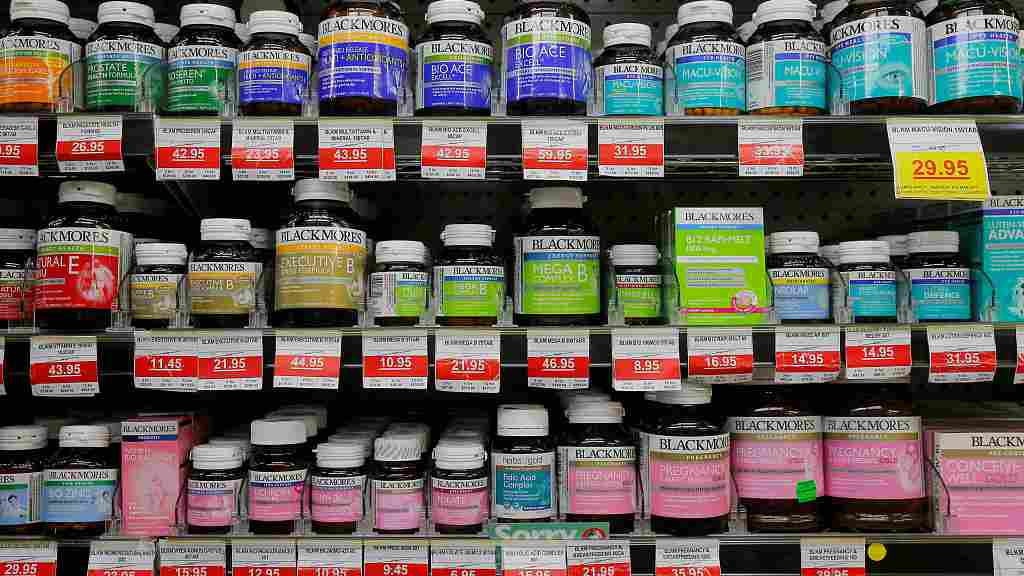
Company
15:49, 26-Feb-2019
Blackmores CEO steps down amid declining China sales
CGTN

The CEO of Australian health supplement company Blackmores resigned on Tuesday, after the company issued a profit warning following falling demand in China, one of its most important markets.
The company announced that chief executive Richard Henfrey would step down, with shares falling by almost 23 percent since the profit warning was announced a week ago.
China had been responsible for years of double-digit growth for Blackmores, with the company one of the best-performing Australia-listed stocks since late 2015.
However, after the company confirmed that sales in the Chinese market were down 11 percent in the last six months of 2018 to 65 million Australian dollars (46.5 million U.S. dollars), investors were quick to sell, pushing Blackmore's share price down by as much as 34 percent.
Last week's profit warning saw the company blame its poor China sales on “continued changes to the way consumers purchase our products as well as higher inventory in the trade and a general softening of consumer sentiment.”
China represents 31 percent of earnings for Blackmores, and its exposure to the Chinese market means overall net profit was up by only 0.4 percent in the final half of the year.
Blackmores saw its China sales skyrocket in 2016, a year that saw the company hit record revenue of 718.3 million Australian dollars (514 million U.S. dollars).
However, according to Credit Suisse, 70 percent of Blackmores' sales in China were made through “daigou,” Chinese shoppers who buy goods overseas on behalf of consumers and bring them into the country on their behalf.
The daigou phenomenon was hit by a crackdown last October, leading to a drop in share prices for companies like Blackmores as well as luxury foreign brands.

A crackdown on "daigou" shoppers hit shares of many foreign luxury brands last year, while also encouraging them to set up direct sales channels with the Chinese market. /VCG Photo
A crackdown on "daigou" shoppers hit shares of many foreign luxury brands last year, while also encouraging them to set up direct sales channels with the Chinese market. /VCG Photo
In a bid to move away from daigou sales, the Australian vitamin maker looked to change its China strategy by improving its direct sales channels to China, setting up partnerships with e-commerce platforms like Alibaba's Tmall.
That strategy seemed effective at first, with profits for the fiscal year 2017 up 18.6 percent, with most of that growth coming from the Chinese market.
In its profit warning, Blackmores warned investors that there was no sign of sales picking up in the near future, saying it did not “expect the second half profit performance to be ahead of the first half result.”

SITEMAP
Copyright © 2018 CGTN. Beijing ICP prepared NO.16065310-3
Copyright © 2018 CGTN. Beijing ICP prepared NO.16065310-3